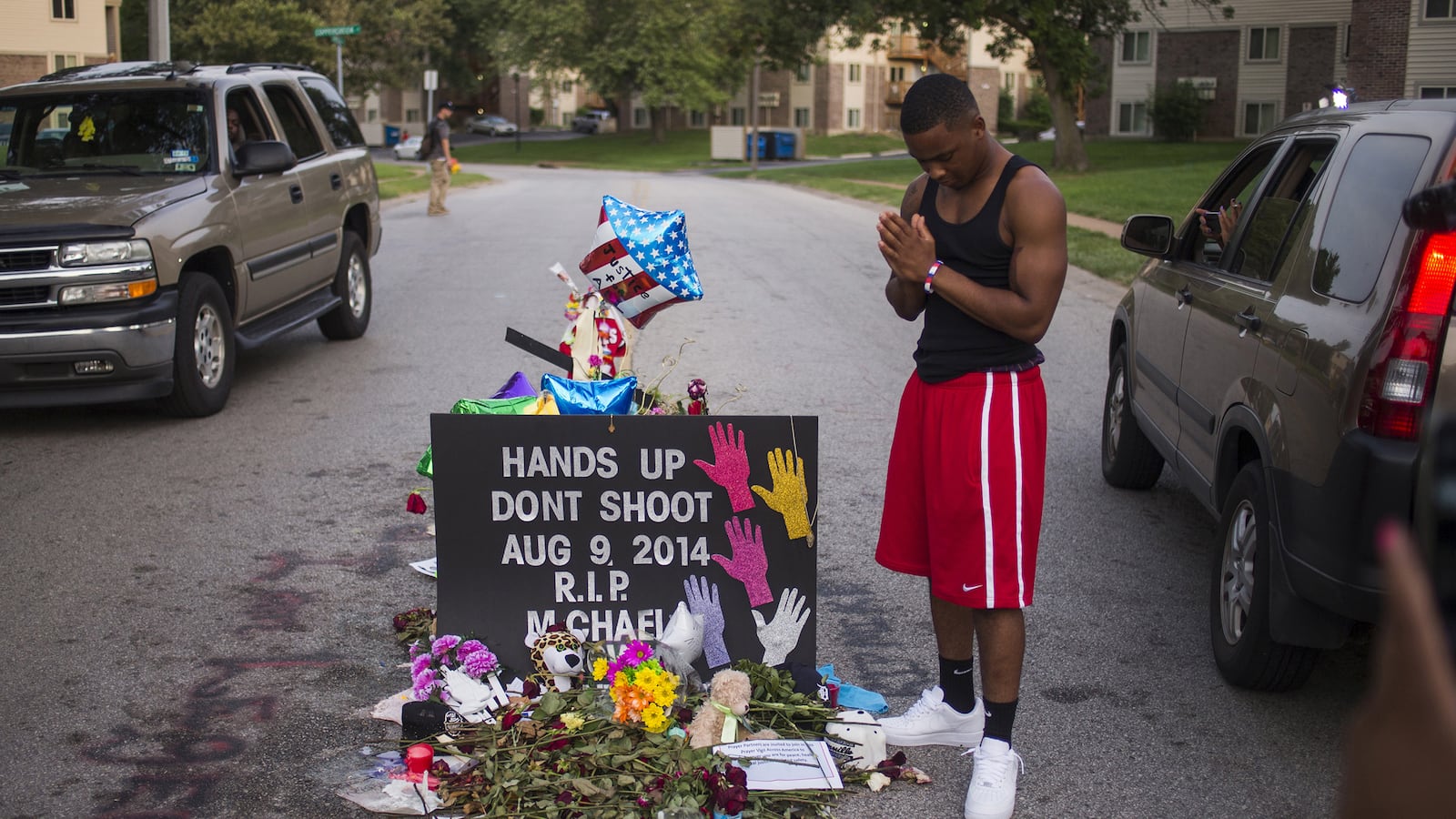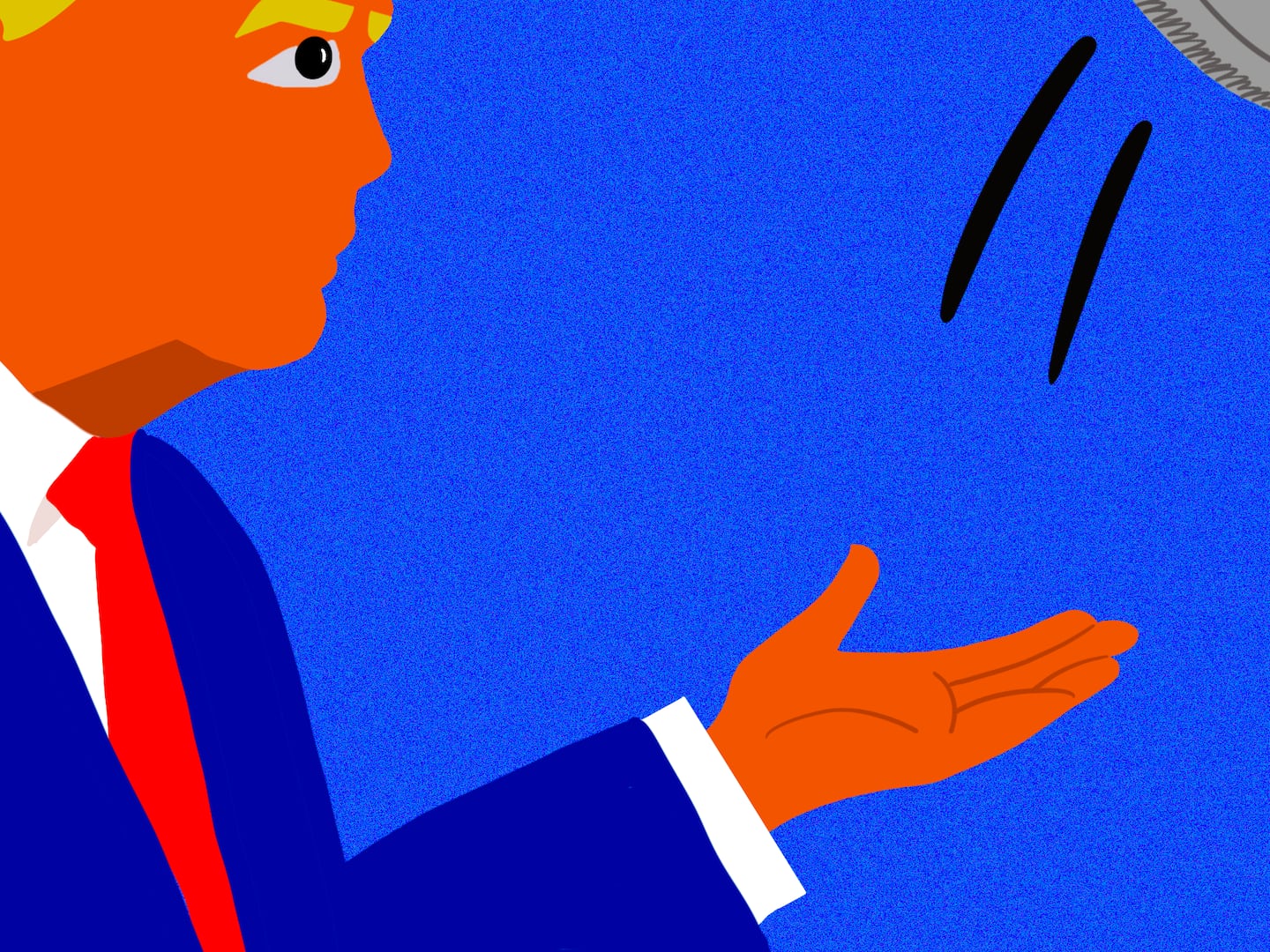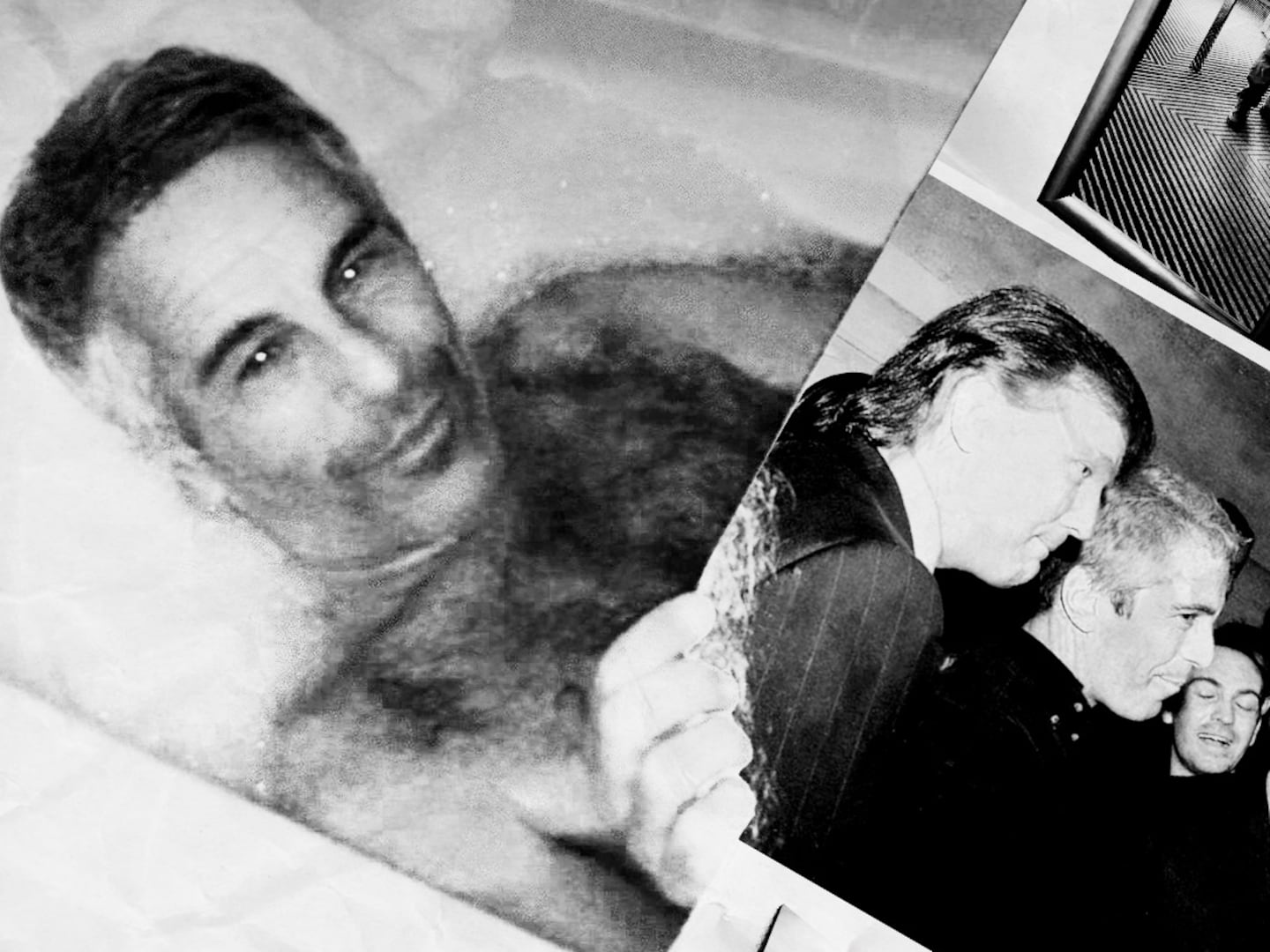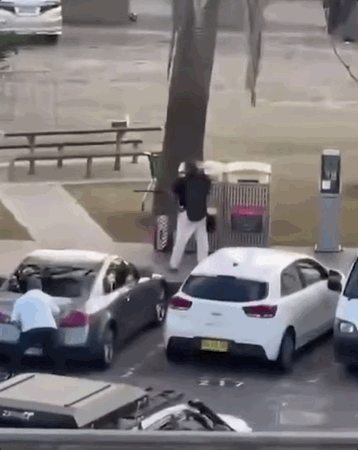A year after Darren Wilson shot Michael Brown dead in Ferguson, Missouri, we can celebrate that this hideous incident has sparked the first genuine debate about black America’s relationship with the police.
However, there is a certain irony as well, in that our initial take on Ferguson has proven to be a myth.
Edison did not invent the lightbulb, Marie Antoinette never said “Let them eat cake,” Nero did not fiddle while Rome burned—and Darren Wilson did not shoot Mike Brown in the back with his hands up, and Brown did reach into Wilson’s car and try to take his gun. No reasonable person, even with the deepest concern about the cops and black America, can deny the findings of the Department of Justice’s report on the incident.
Yet a great many people don’t want to let the myth go. “Mike Brown,” as an utterance and as a meme, has become a totem for the role of racism in post-Civil Rights American life, and that totemic status requires a basic assumption that the main lesson of what happened between Wilson and Brown was that an innocent boy ran up against a white cop’s racist animus.
Black journalist Jonathan Capeheart was viciously flamed on Twitter for urging us to accept the Department of Justice report’s findings. I recently overheard a conversation between two working-class black men, one about 60 and the other about 40. One said “Now, anybody who says there’s no racism is just crazy. All they have to do is look around. Mike Brown, man, that was it right there.” The other man readily agreed. That exchange is hardly untypical. The New Yorker’s piece on Ferguson is committed to drawing a lesson about racism from the story despite the Department of Justice report--its title could be “But Still.”
There is good news and bad news here.
First, the good news. History is being made despite that what sparked it turned out to have been a misimpression. In the grand scheme of things, the progress is more important. If Ray Tensing had casually shot Sam Dubose dead just three years ago, it is likely that the case would never have gotten beyond local news. It is also likely Tensing would not already have been arrested.
The issues of punitive fines and jail sentences connected to them have become part of a nationwide conversation after the Department of Justice’s revelations of the grisly, racist policing practices in Ferguson.
This is big. Black Americans’ sense of racism as a defining feature of black life is based primarily on the police. When incidents such as the deaths of Brown, John Crawford, Tamir Rice, Eric Garner, Freddie Gray, Walter Scott, and Sam Dubose are no longer a norm, America will have turned a corner on race in the way that so many wish would happen.
But now the bad part. One senses that for many people, to truly face squarely that what happened in Ferguson was not what we were initially told would be to let go of some kind of opportunity. That opportunity would seem to be, judging from columns like Charles Blow’s this week and the New Yorker piece on Darren Wilson, that changing how cops relate to black men will require white America to internalize a lesson about how racism infects how black people are perceived, and also determines black people’s life chances structurally, as it is often put. In this light, people seem to almost need, or even want, Wilson to serve as the bad white person and Brown to serve as the good black one.
However, if the idea is to teach white America this lesson, historians may be perplexed in 100 years that we were so focused on the Ferguson case when Tamir Rice and John Crawford were simply shot dead in cold blood, and Walter Scott and Sam Dubose were shot dead for trying to flee from arrest for petty misdemeanors.
More to the point, there is an issue of pragmatics we must face. White America is, quite simply, not going to internalize a lesson about racism from the story of a boy who had just stolen from a convenience store who then refused an officer’s order and later tried to take his gun. Some may suppose that the very complexity of this case makes it a better lesson than the simpler ones, in possibly teaching whites that black lives must be valued even amidst imperfect behavior. (A common criticism of those who question Brown’s behavior is “So you have to have a perfect victim?”)
But folks, it’s not going to work. I say that as a writer who has received more angry mail for my statements supporting the Ferguson protesters than I have ever gotten in my 15 years of writing on race—and given my “controversial” politics I have obviously been no stranger to hate mail from all over the spectrum. Yes, ex-cops, but also grandmothers, expatriates, people in prison, accountants, you name it. I have even gotten a lot of actual physical letters—rare these days—with sometimes several pages of urgent handwriting. For a great many white Americans, the idea of Ferguson as a lesson about tolerance has stoked an “All right, enough!” sentiment. It just pushes people beyond where we can expect them to go. Wringing hands about that will accomplish precisely the wringing of the hands.
The idea that Ferguson needs to teach America a lesson is a distraction anyway. At the end of day, getting cops to stop killing black people for no reason is a separate mission from getting white people to understand the nuances and power of racism. It’s easy to forget that because the two things are discussed together so often. However, that kind of discussion is idealist—utopian, almost. A flintier sense of our mission is to make it so that cops know that killing black people for no reason will lose them their jobs and put them behind bars.
As to ideas such as Blow’s that people like Wilson’s “historical illiteracy and incuriousness creates the comfortable distance on which pernicious structural racism lies,” the words are gorgeous but the argument less so. In what sense, precisely, does making sure a Michael Slager doesn’t kill a Walter Scott require that Slager become more historically literate and more curious? That’s a highly unusual proposition, and requires careful presentation and defense if anyone beyond a small circle of the converted is to take it seriously.
There is, frankly, a certain self-congratulatory smugness—unintended but present nevertheless—in the idea that fighting police brutality requires calling for whites to undergo a psychological revolution. It is also unrealistic, calling for an expansion of cognitive circles of empathy far beyond anything we would otherwise expect.
We are living in a time when we may finally get some movement on the relationship between the police and black people. Who could have known that there would be a time when the names of unjustly killed black people would constitute a list of names with iconic status, familiar nationwide? In the grand scheme of things, the fact that what sparked all of this is a myth is beside the point—but so is the fact that Darren Wilson and his ilk don’t understand that racism is structural.
We’re moving on, here in the real, imperfect world. It’s all there is.






